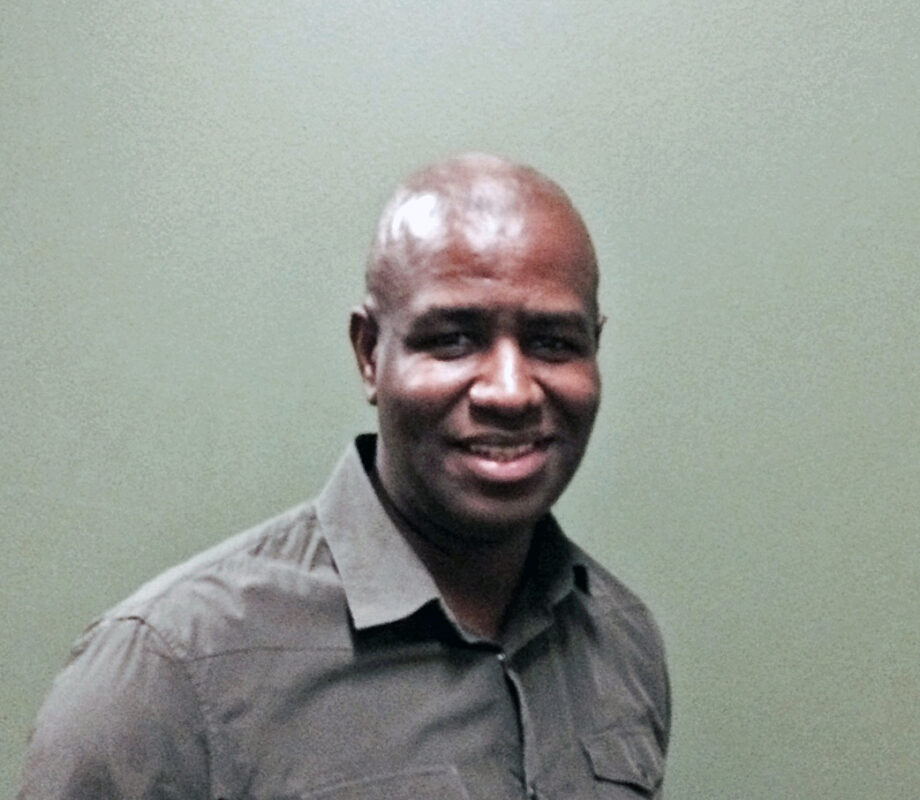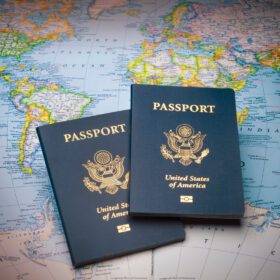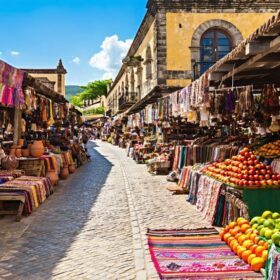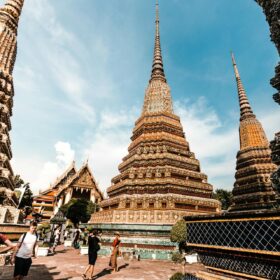Your Real-Deal Guide to Living in Panama City as an Expat in 2025
Recent Blog
Ready to explore the world?
Your Real-Deal Guide to Living in Panama City as an Expat in 2025
- Joseph Chanlatte
- Travel Blogs, Central America, Expat
You know that moment when you’re scrolling through yet another “best places to live abroad” article, and Panama City keeps popping up? Well, there’s a reason for that. This isn’t just another tropical paradise promising cheap beer and endless sunshine, though it delivers on both fronts. Panama City is where modern skyscrapers kiss colonial cobblestones, where you can grab a $3 lunch from a street vendor and then catch a Broadway-quality show at the National Theater.
After talking with dozens of expats who’ve leaped, I’ve learned that living in Panama City as an expat is like joining an exclusive club where everyone’s got a story about how they ended up here. Some came for business, others for retirement, and a surprising number just got tired of explaining their career choices at high school reunions.
But here’s what they don’t tell you in those glossy expat magazines: Panama City isn’t for everyone. It’s hot, it’s humid, and sometimes the infrastructure makes you appreciate whatever you left behind. Yet for those who click with this city, it becomes more than a place to live, it becomes home.
Table of Contents
ToggleTable of Contents
The Money Talk: What Living in Panama City Actually Costs
Let’s get the elephant out of the room first. Cost of living in Panama City expat life varies wildly depending on whether you’re channeling your inner local or insisting on imported everything.
Here’s the breakdown that most expats find realistic:
| Expense Category | Budget Range (Monthly) | Notes |
|---|---|---|
| Housing | $800 – $2,500 | Depends heavily on neighborhood and amenities |
| Groceries | $300 – $600 | Mix of local markets and imported goods |
| Utilities | $100 – $200 | AC is your biggest expense |
| Transportation | $50 – $300 | Metro/bus vs. Uber/car ownership |
| Dining Out | $200 – $500 | Street food to fine dining spectrum |
| Healthcare | $50 – $200 | With private insurance |
The average cost of living Panama City expat couples find comfortable hovers around $2,500-$3,500 monthly. Singles can live well on $1,800-$2,500, assuming you’re not trying to recreate your exact lifestyle from back home.
Sarah, an American marketing consultant who moved here three years ago, puts it perfectly: “I spend less on rent for a gorgeous apartment with a balcony overlooking the bay than I did for a shoebox in Denver. But I definitely pay more for peanut butter.”
Neighborhood Navigation: Finding Your Panama City Sweet Spot
Panama City neighborhoods expat communities gravitate toward aren’t random but there’s method to this geographical madness. Each area has its own personality, and picking wrong can make or break your experience.
Casco Viejo: The Instagram Darling
This UNESCO World Heritage site is where cobblestones meet craft cocktails. It’s undeniably gorgeous, but living here means embracing tourist crowds, premium prices, and the occasional lack of parking. Perfect for those who want to feel like they’re starring in their own travel documentary.
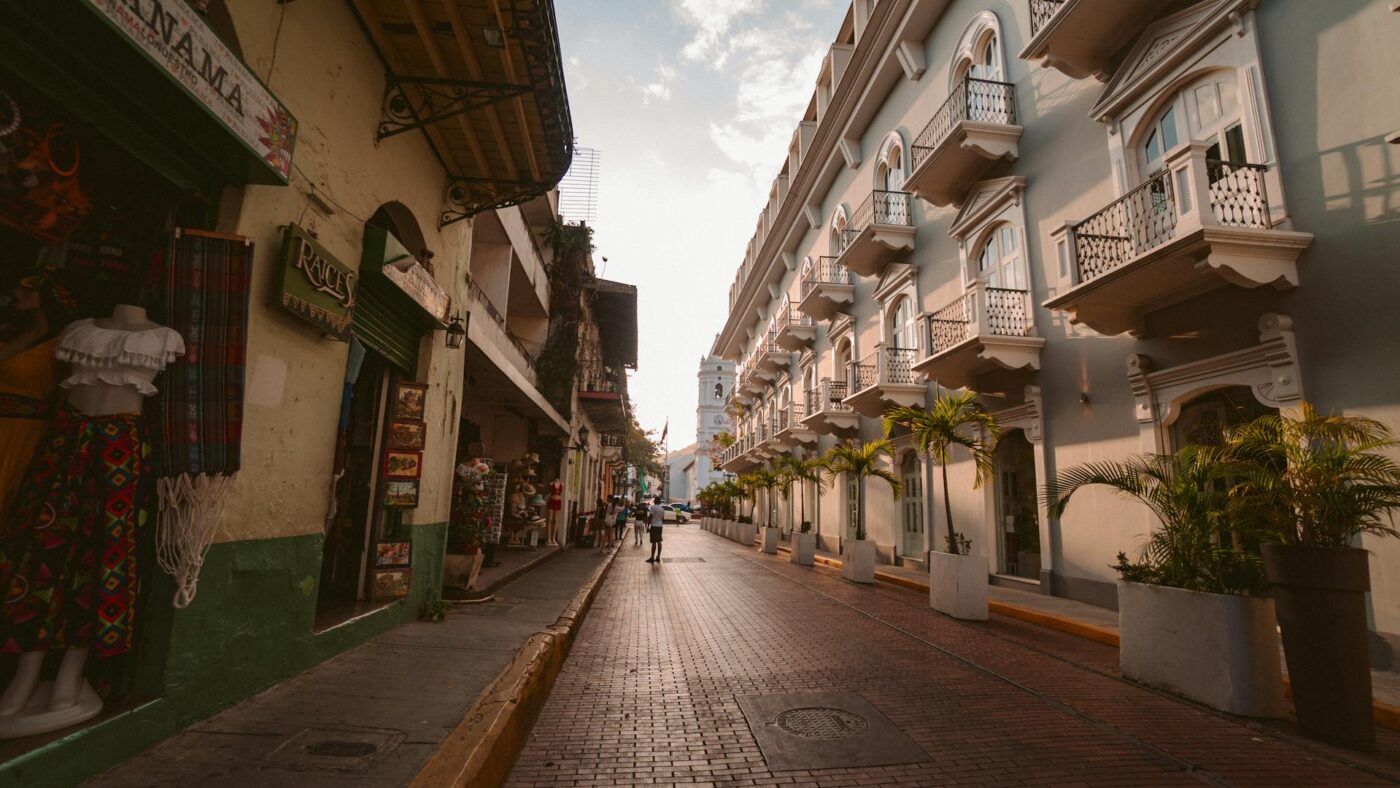
El Cangrejo: The Expat Hub
Best areas in Panama City for expats conversations always circle back to El Cangrejo. It’s centrally located, walkable, and packed with restaurants that serve food you can actually pronounce. The downside? It can feel a bit like an American suburb that got lost in the tropics.
Costa del Este: The Modern Marvel
Think Miami meets Panama. Gleaming towers, international schools, and shopping malls that could be anywhere in the world. It’s where families with kids often land, though some expats find it lacks soul.
San Francisco: The Local Favorite
This is where you’ll find the sweet spot between authentic Panamanian life and expat amenities. Great restaurants, reasonable prices, and a genuine neighborhood feel.
Housing Hunt: Cracking the Expat Housing Panama City Code
Renting an apartment in Panama City as a foreigner requires patience and a good dose of flexibility. The market moves fast, and the good places disappear quicker than free samples at Costco.
Most expats start with temporary housing while they get their bearings. Panama Relocation Tours offers short-term rentals and guided neighborhood tours, and think of them as your real estate wingman. Panama Equity Real Estate specializes in expat needs and actually returns your calls, which is apparently rare in this business.
Here’s the insider scoop on the rental game:
- Security deposits range from one to three months’ rent
- Furnished places cost 20-30% more, but save you the headache of buying everything
- High-rise condos usually include utilities, gym access, and sometimes even maid service
- House rentals give you more space, but often mean dealing with individual utility companies
The golden rule? Never sign anything without seeing it in person. Those “gorgeous ocean view” photos might be taken with a telescope from the building next door.
Healthcare That Won’t Break the Bank (Or Your Spirit)
One of the biggest surprises about healthcare Panama City expat life? It’s actually pretty impressive. Pacifica Salud Hospital and The Panama Clinic cater specifically to expats and maintain standards that rival anything you’d find in North America or Europe.
English-speaking doctors Panama City are easier to find than you’d expect. Many doctors trained in the U.S. or Europe, and private healthcare here costs a fraction of what you’d pay back home.
Sarah mentioned earlier had emergency surgery here last year: “The level of care was exceptional, the facilities were modern, and the bill was less than my old insurance deductible in the States.”
Private health insurance Panama City expat plans through local providers like Mapfre or international companies like Cigna Global run $50-$200 monthly, depending on coverage and age.
Banking in Panama City Expat Style: Navigating the Financial Maze
Opening a bank account here is like solving a puzzle where someone keeps changing the rules. Banistmo and Global Bank Panama are expat-friendly, but you’ll need:
- Valid passport and visa
- Reference letters (sometimes from your home country bank)
- Proof of income
- Patience (lots of it)
- A good book (for the waiting)
The process can take anywhere from one visit to several weeks, depending on your documentation and the banker’s mood. Pro tip: Dress like you’re going to a job interview, and bring every document you’ve ever owned.
Getting Around: Transportation Tales
Public transport in Panama City for foreigners is surprisingly good. The Metro is clean, efficient, and costs under $0.50 per ride. Buses cover everywhere the Metro doesn’t, though deciphering routes requires either local knowledge or a good sense of adventure.
Most expats end up using a combination of:
- Metro/Bus for daily commuting
- Uber for convenience (though surge pricing during rush hour is real)
- Taxis for short trips (negotiate the fare first)
- Walking in neighborhood pockets
Car ownership is optional in most expat-friendly neighborhoods, but if you plan to explore beyond the city, having wheels opens up weekend possibilities.
The Social Scene: Building Your Panama City Expat Communities
The expat communities Panama City offers are surprisingly diverse. You’ll find everyone from tech entrepreneurs to retirees, from teachers to consultants who finally admitted they were tired of office politics.
Expats in Panama City Facebook Group is your social lifeline with over 15,000 members sharing everything from apartment listings to restaurant recommendations to existential crises about missing Target.
Regular meetups happen at places like JW Marriott Panama City, and there are book clubs, hiking groups, and business networking events. The community is welcoming but not overwhelming—you can be as social or as hermit-like as you prefer.
Education Excellence: International Schools Panama City Expat Families Love
For families, expat schools Panama City options are solid. International schools follow American, British, or International Baccalaureate curricula, with facilities that often surpass what kids had back home.
Tuition ranges from $8,000-$20,000 annually, which sounds steep until you compare it to private school costs in major U.S. or European cities.
Panama City Residency Options: Picking Your Path
Panama City digital nomad visa doesn’t exist yet (they’re working on it), but several residency options work for different situations:
- Friendly Nations Visa (easiest for Americans, Canadians, Europeans)
- Investor Visa (requires property or business investment)
- Pensionado Visa (for retirees with proven pension income)
- Self-Economic Solvency Visa (show financial stability)
ReloFirm specializes in visa facilitation and can navigate the bureaucracy while you focus on settling in.
Daily Life Essentials: Shopping, Eating, and Living
Grocery stores Panama City expat communities rely on include Riba Smith for international products, Super 99 for everyday needs, and Felipe Motta Wine Store for when you need to remember what good cheese tastes like.
The dining scene is incredible. You can grab a $3 lunch at a local fonda or drop $100 on dinner at a rooftop restaurant overlooking the Pacific. Food trucks serve everything from traditional Panamanian to Korean BBQ.
Shopping ranges from massive American-style malls to local markets where bargaining is expected and cash is king.
Climate Reality Check
Let’s talk about the weather elephant in the room. Panama City is hot and humid year-round, with temperatures hovering between 75-90°F. There are two seasons: wet (May-November) and dry (December-April).
The humidity takes adjustment. Your hair will have opinions about this climate. Your clothes will stick to you. Air conditioning becomes a line item in your budget, not a luxury.
But there’s something liberating about never checking the weather app and knowing shorts are always appropriate attire.
Language and Culture: Bridging the Gaps
Cultural challenges or language barriers might expats face here are generally mild compared to other Latin American destinations. English is widely spoken in expat-heavy areas, tourist zones, and professional settings.
That said, learning Spanish opens doors and shows respect. Casco Antiguo Spanish School offers classes designed specifically for expats, with flexible scheduling and cultural immersion components.
The culture is welcoming but not pushy. Panamanians are generally friendly and patient with fumbling Spanish attempts. The pace of life is slower than what many North Americans and Europeans expect, embrace it or fight it daily.
The Tech Life: Internet and Infrastructure for Remote Work
Utilities and internet for remote work in Panama City are generally reliable. Internet speeds in modern buildings easily handle video calls and large file transfers. Most expat-heavy areas have multiple internet providers, so outages are rare.
Bambu Mobile provides easy SIM card setup for local phone service. Panama Coworking Center offers professional spaces when working from your apartment loses its appeal.
Power outages happen but aren’t frequent in the main city areas. Having a UPS backup for your computer is smart if you’re running important video calls.
Real Estate: Can You Buy Your Piece of Paradise?
Expats buy property in Panama City more easily than in most countries. Foreign ownership is straightforward, and there are no restrictions on beachfront property (unlike some regional neighbors).
The process involves lawyers, title searches, and paperwork, but it’s transparent and legitimate. Many expats start by renting, get to know the market, then buy once they’re sure about their preferred area.
Safety and Security: The Real Story
Safety Panama City expat concerns are legitimate but manageable. Like any major city, there are safe areas and areas to avoid. Tourist police are visible in main zones, and violent crime against expats is relatively rare.
Common sense applies: don’t flash expensive jewelry, avoid certain neighborhoods at night, and use registered taxis or Uber instead of hailing random cars.
Most expats report feeling safer here than in major U.S. cities, though petty theft (phones, wallets) requires the same vigilance you’d use anywhere urban.
The Verdict: Is Panama City Right for You?
Living in Panama City as an expat isn’t about finding paradise; it’s about finding a place where life makes sense for your particular combination of priorities, budget, and tolerance for adventure.
You’ll love it here if you:
- Appreciate cultural diversity in a relatively compact area
- Don’t mind heat and humidity
- Enjoy being part of a growing expat community
- Want modern amenities with Latin American flavor
- Like the idea of affordable healthcare and lower living costs
You might struggle if you:
- Need everything to work exactly like it did back home
- Can’t handle bureaucratic patience requirements
- Prefer four seasons and cool weather
- Want to blend in completely with the local population
Your Next Steps
The best way to know if Panama City works for you? Visit first. Stay for at least a month if possible. Walk the neighborhoods, eat the food, ride the Metro, sit in traffic, and experience both the rainy season downpours and the dry season heat.
Join the Facebook expat groups before you arrive. Connect with Panama Relocation Tours for the insider’s perspective. Talk to people who’ve made the move, and most are happy to share their experiences over coffee.
Panama City isn’t perfect, but for many expats, it’s perfectly imperfect in all the right ways. The infrastructure keeps improving, the expat community keeps growing, and the sunsets over the Pacific never get old.
Whether you’re escaping corporate life, stretching a retirement budget, or just ready for an adventure that doesn’t require learning a completely new alphabet, Panama City might just be the plot twist your life story needs.
The question isn’t whether you can make it work here, it’s whether you’re ready to find out.
Ready to explore Panama City for yourself? Start by connecting with the expat community online, researching neighborhoods that fit your lifestyle, and planning an exploratory visit to get a true feel for daily life. Whether you’re drawn to the vibrant city center, coastal views, or quieter residential areas, your Panama adventure could be just one decision away. For even more inspiration on where expats are thriving around the world, don’t miss The Ultimate Guide: Best Countries for Expats. It’s packed with insights on the top destinations for living, working, and building your dream life abroad.
Affiliate Disclaimer: This article contains affiliate links, meaning I may earn a commission if you click through and make a purchase, at no extra cost to you.
Travel is one of the best gifts I’ve ever given myself, and I want others to experience that same magic. If you’re a travel enthusiast, the faveplus travel site is an all-in-one guide packed with real, actionable steps to help you get out there and explore the world.
